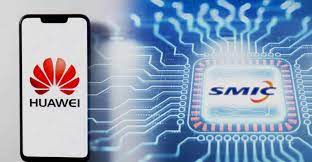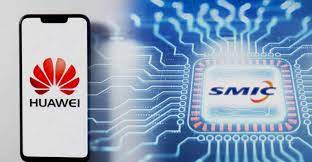
Following the discovery of new chips in Huawei phones that may violate trade rules, the U.S. Commerce Department should stop all technology exports to Huawei and China's largest semiconductor company, the chair of the House of Representatives' committee on China said on Wednesday.
Representative Mike Gallagher made the remarks after Chinese electronics giant Huawei last week began selling a phone called the Mate 60 Pro. Gallagher is a prominent Republican lawmaker whose select committee has urged the Biden administration to take a tougher stance on sending American technology to China. The chip in the phone, according to analysts, was created by Semiconductor International Manufacturing Corp (SMIC) using a technological advancement.
"This chip likely could not be produced without US technology and thus SMIC may have violated the Department of Commerce’s Foreign Direct Product Rule," Gallagher said in a statement. "The time has come to end all U.S. technology exports to both Huawei and SMIC to make clear any firm that flouts U.S. law and undermines our national security will be cut off from our technology."
Due of concerns about its national security, Huawei was added to a trade blacklist in May 2019, requiring its U.S. suppliers and other parties to seek a special licence in order to send goods to it. SMIC was included on the 'entity list' in December 2020 due to concerns that it would transfer cutting-edge technology to military users.
The Foreign Direct Product Rule, which forbids any company, anywhere in the world, from utilising equipment from the United States to manufacture a chip for Huawei, is one of the trade restrictions imposed on Huawei and SMIC.
However, Reuters has previously revealed that suppliers to Huawei and SMIC have been granted licences to sell U.S. technology to the corporations worth billions of dollars despite being on the trade lists.
Ninety percent of the licences were purchased for SMIC.
An inquiry for comments was not immediately answered by the division of the U.S. Commerce Department responsible for export restrictions.
(Source:www.scmp.com)
Representative Mike Gallagher made the remarks after Chinese electronics giant Huawei last week began selling a phone called the Mate 60 Pro. Gallagher is a prominent Republican lawmaker whose select committee has urged the Biden administration to take a tougher stance on sending American technology to China. The chip in the phone, according to analysts, was created by Semiconductor International Manufacturing Corp (SMIC) using a technological advancement.
"This chip likely could not be produced without US technology and thus SMIC may have violated the Department of Commerce’s Foreign Direct Product Rule," Gallagher said in a statement. "The time has come to end all U.S. technology exports to both Huawei and SMIC to make clear any firm that flouts U.S. law and undermines our national security will be cut off from our technology."
Due of concerns about its national security, Huawei was added to a trade blacklist in May 2019, requiring its U.S. suppliers and other parties to seek a special licence in order to send goods to it. SMIC was included on the 'entity list' in December 2020 due to concerns that it would transfer cutting-edge technology to military users.
The Foreign Direct Product Rule, which forbids any company, anywhere in the world, from utilising equipment from the United States to manufacture a chip for Huawei, is one of the trade restrictions imposed on Huawei and SMIC.
However, Reuters has previously revealed that suppliers to Huawei and SMIC have been granted licences to sell U.S. technology to the corporations worth billions of dollars despite being on the trade lists.
Ninety percent of the licences were purchased for SMIC.
An inquiry for comments was not immediately answered by the division of the U.S. Commerce Department responsible for export restrictions.
(Source:www.scmp.com)














